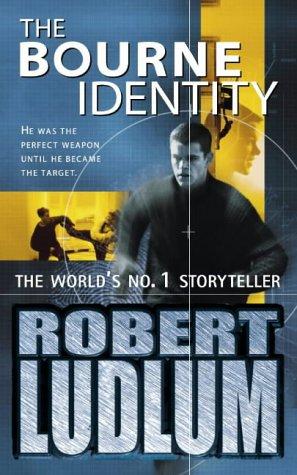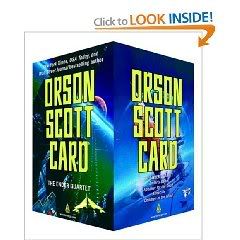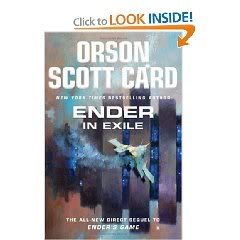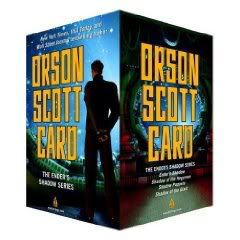I finally finished reading Hyperion by Dan Simmons, and am moving onto the sequel, The Fall of Hyperion. Here is my review of the much-lauded science fiction monster.
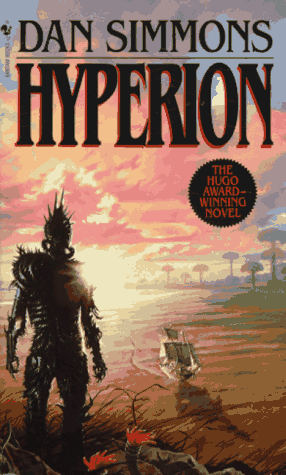
This is a very convoluted tale, as Simmons throws the reader into the middle of an unknown world, with names of places, people, and government agencies being tossed around left and right. Essentially, seven travellers have been summoned by the human Hegemony to complete a pilgrimage to the Time Tombs on Hyperion, where an alien being called The Shrike has been sent back from the future for an unknown purpose. There is much more going on, but this is the basis of the narrative.
As the story unfolds, the reader is treated to six character histories, written in six distinct voices. The brilliance of Simmons is his ability to make these novellas-within-a-novel come together to form a thickly layered plot. However, the different writing styles are both a blessing and a curse. On one hand, they take you into the mind of each character, presenting extremely personal first-hand accounts of what has led each one to the pilgrimage. On the other hand, the variety can make a chapter switch fairly jarring. One moment you are reading journal entries, the next you are reading a detective story, and the next you are reading a tragic comedy. I found it difficult to read the book for long stretches because of this, but it did not lessen my overall enjoyment of the adventure.
As a standalone story, Hyperion is ultimately incomplete and requires you to pick up its sequel to complete the pilgrimage. The travellers only arrive at the Time Tombs at the very end of the novel, but the reader is given so much backstory, that they feel like they really know the people who are about to embark into the heart of the journey, and are therefore compelled to continue it. It is difficult to leave the story as is, and I suppose the ability of a writer to leave his or her audience hanging and clamoring for the completion of a story is a sign of truly great literature.
I do have one warning for those at all curious about this book: If you require spoon feeding in your stories, this is likely not for you. Simmons' weaving and winding narrative structures, as well as his dense prose, make this a book which is not for science fiction lightweights. If you are at all familiar with the genre, however, or feel like you are up for a bit of a challenge, Hyperion may be the book for you.
On a personal note, this book is far from being one of my favourites, for the reasons mentioned above, but there are moments which are so affecting, and lines of dialogue which are so inspiring or enlightening, that it is difficult to ignore. The book's main strength is its insights into human motivation and the personal relationships and struggles that define us all. 4/5.

This is a very convoluted tale, as Simmons throws the reader into the middle of an unknown world, with names of places, people, and government agencies being tossed around left and right. Essentially, seven travellers have been summoned by the human Hegemony to complete a pilgrimage to the Time Tombs on Hyperion, where an alien being called The Shrike has been sent back from the future for an unknown purpose. There is much more going on, but this is the basis of the narrative.
As the story unfolds, the reader is treated to six character histories, written in six distinct voices. The brilliance of Simmons is his ability to make these novellas-within-a-novel come together to form a thickly layered plot. However, the different writing styles are both a blessing and a curse. On one hand, they take you into the mind of each character, presenting extremely personal first-hand accounts of what has led each one to the pilgrimage. On the other hand, the variety can make a chapter switch fairly jarring. One moment you are reading journal entries, the next you are reading a detective story, and the next you are reading a tragic comedy. I found it difficult to read the book for long stretches because of this, but it did not lessen my overall enjoyment of the adventure.
As a standalone story, Hyperion is ultimately incomplete and requires you to pick up its sequel to complete the pilgrimage. The travellers only arrive at the Time Tombs at the very end of the novel, but the reader is given so much backstory, that they feel like they really know the people who are about to embark into the heart of the journey, and are therefore compelled to continue it. It is difficult to leave the story as is, and I suppose the ability of a writer to leave his or her audience hanging and clamoring for the completion of a story is a sign of truly great literature.
I do have one warning for those at all curious about this book: If you require spoon feeding in your stories, this is likely not for you. Simmons' weaving and winding narrative structures, as well as his dense prose, make this a book which is not for science fiction lightweights. If you are at all familiar with the genre, however, or feel like you are up for a bit of a challenge, Hyperion may be the book for you.
On a personal note, this book is far from being one of my favourites, for the reasons mentioned above, but there are moments which are so affecting, and lines of dialogue which are so inspiring or enlightening, that it is difficult to ignore. The book's main strength is its insights into human motivation and the personal relationships and struggles that define us all. 4/5.















